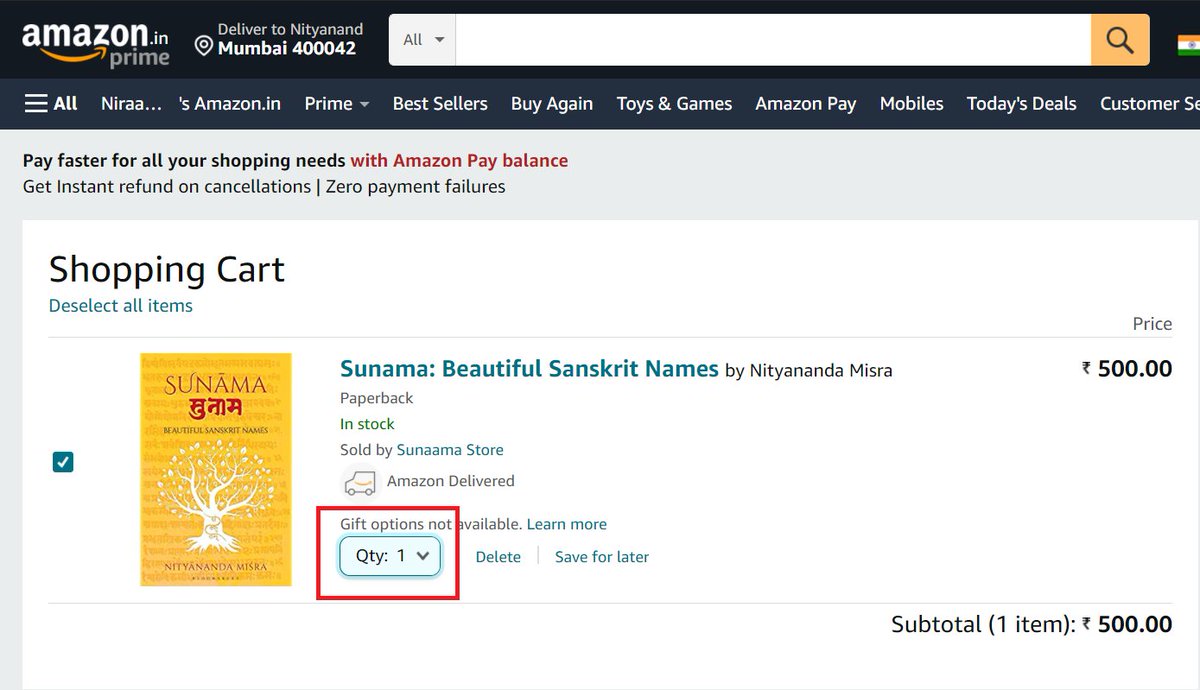
Requested to comment: The Rigveda does not say this.
The quote is based on a bad translation (mistranslation) of RV X.95.15 by Griffith “... with women there can be no lasting friendship: hearts of hyenas are the hearts of women.”
This translation is wrong.
1/n
The quote is based on a bad translation (mistranslation) of RV X.95.15 by Griffith “... with women there can be no lasting friendship: hearts of hyenas are the hearts of women.”
This translation is wrong.
1/n
https://twitter.com/barandbench/status/1383029863548743680
The words ‘sālāvṛkāṇāṃ hṛdayāni’ in the mantra are a reference to friendships, not women. As ‘hṛdayāni’ is in neuter gender, it cannot quality women.
Meaning as per Sāyaṇa: “There are no friendships with women, such friendships are like the hearts of hyena/wolf.”
2/n
Meaning as per Sāyaṇa: “There are no friendships with women, such friendships are like the hearts of hyena/wolf.”
2/n
Mantra: न वै स्त्रैणानि सख्यानि सन्ति सालावृ॒काणां हृदयान्येता॥
Commentary by Sāyaṇa: “स्त्रैणानि” स्त्रीणां कृतानि “सख्यानि “न वै सन्ति”। न सन्ति खलु। अभावे कारणमाह। “एता” एतानि सख्यानि “सालावृकाणां हृदयानि” तेषां हृदयानि यथा वत्सादीनां विश्वासापन्नानां घातुकानि तद्वत्।
3/n
Commentary by Sāyaṇa: “स्त्रैणानि” स्त्रीणां कृतानि “सख्यानि “न वै सन्ति”। न सन्ति खलु। अभावे कारणमाह। “एता” एतानि सख्यानि “सालावृकाणां हृदयानि” तेषां हृदयानि यथा वत्सादीनां विश्वासापन्नानां घातुकानि तद्वत्।
3/n
Most importantly, the context: as per Śatapatha Brāhmaṇa (11.5.1.9) and the commentary of Sāyaṇa, these words are said by a woman, a female companion of Urvaśī, to Urvaśī’s lover Purūravas to dissuade him from pursuing her.
(तमितरा प्रत्युवाच/तं हेतरा प्रत्युवाच)
n/n
(तमितरा प्रत्युवाच/तं हेतरा प्रत्युवाच)
n/n
Addendum: इतरा = “another” or “the other (of two), the remaining one of the two” may also refer to Urvaśī, so it is likely the words are spoken by Urvaśī herself to Purūravas.
• • •
Missing some Tweet in this thread? You can try to
force a refresh




